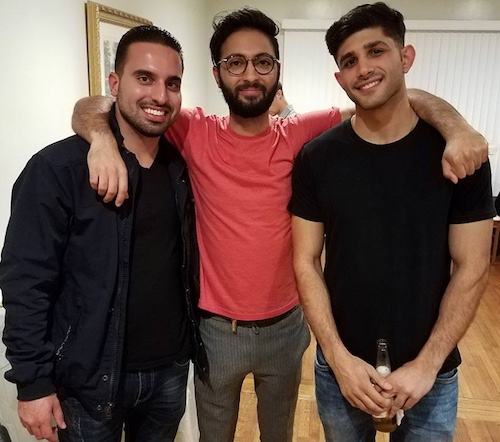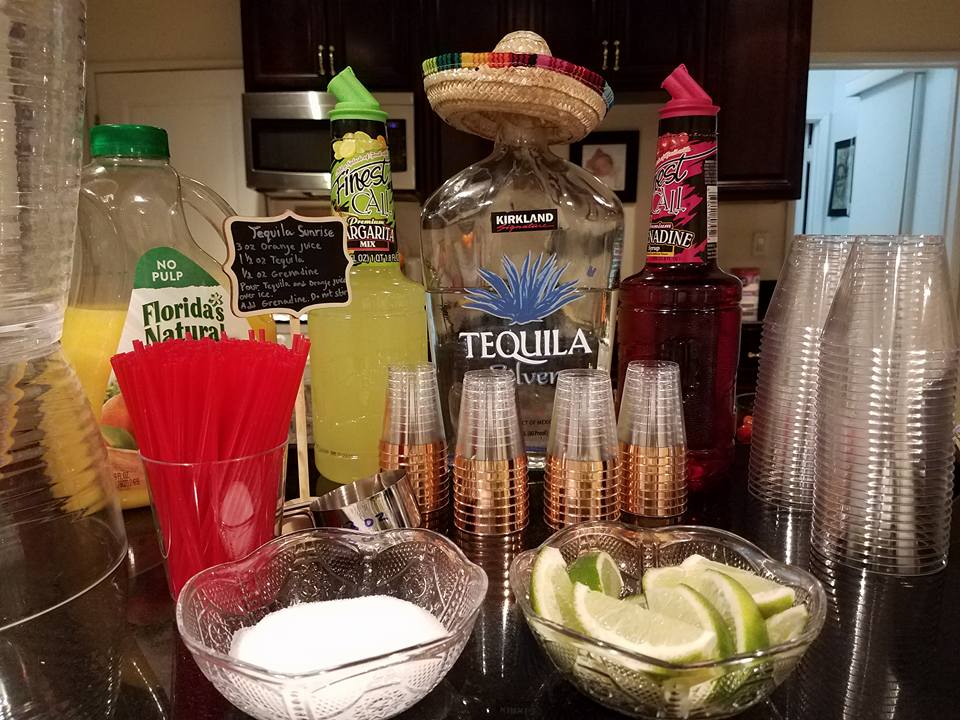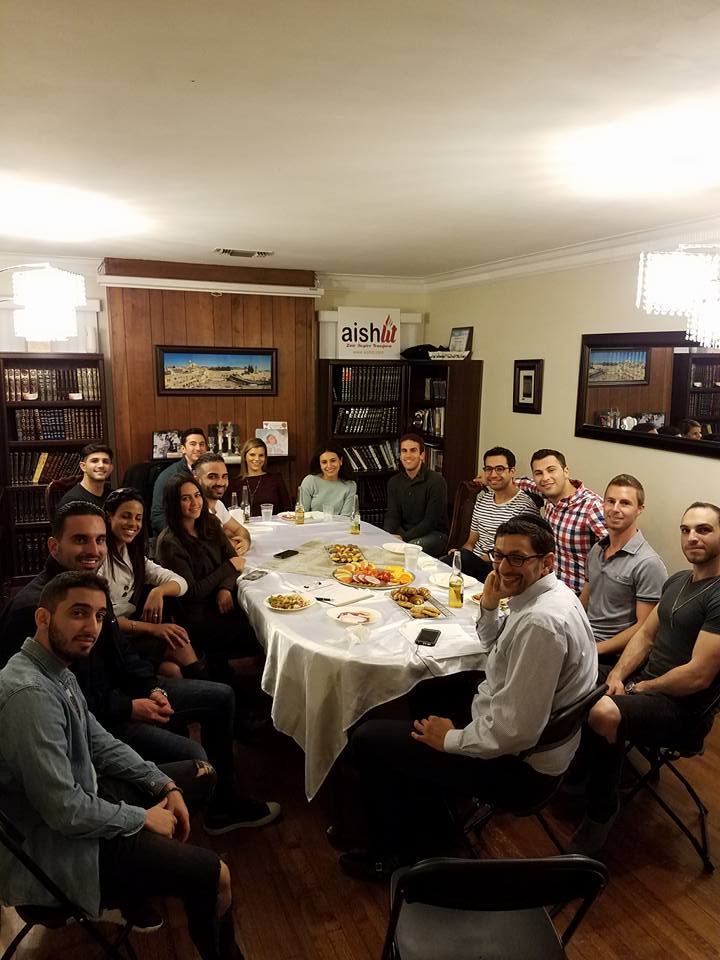Taco, Tequila, and Torah Tuesdays – 03/06/2018
Passover
Passover is fast approaching, and 30 days before Passover starts it says shoalim vedorshim behilchot pesach – you ask and talk about the laws of Passover. In this generation people often times feel the need to travel the world. Shira Melul once met David Yarus, the creator of Jswpie, who himself noticed that in this generation people spend more money on travel than they do on fashion and expansive clothing.
When it comes to Judaism you get changes of emotions all the time. If you look at all of the holidays you can notice that each brings on a different emotion. The year starts with Rosh Hashana (ראש השנה) and then Yom Kippur (יום כיפור) a feeling od deep self reflection and evaluation. Then you move into Sukkot (סוכות) where we experience leaving the comfort of our homes into shelters, also known as the 7 days of happiness. Then Cahnukka (חנוכה) and Purim, etc. We are very fortunate to have each holiday trigger an emotion in us. It gives us the opportunity to see constant change and therefore not feel the constant need to move from our environment. It is something that we already get throughout the year.
Passover and all the Jewish holidays come in seasons. Passover comes exactly at the time when the trees start to blossom. In Shir Hashirim (שיר השירים) it says, hanitzanim niru bearetz, et hazamir higiya (ניצנים נראו בארץ עת הזמיר הגיע) – The blossoms can be seen all over the land, time to start singing has arrived and the voice of the tor-bird can be heard in the land. In this time of transformation the Jews are coming out of Egypt. That is the feeling we get at this time of the year, getting out of our shell and going through a transformation. All of our holidays have their own season that gives us an emotion and make us feel that specific season. Through experiencing the holidays we can change and feel those emotions and achieve happiness and joy through them.
What emotion do you get from Passover? If you think about the process that we go through before Passover comes, we spend days cleaning our house, getting rid of bread to the point where you can no longer see it, and changing out your pots. Why is it so deep, intense, and strict? Why is it more stringent than non kosher food during the year which you are allowed to at least own? Some families that can afford the space would go to the extent of having a separate Passover kitchen built into their homes.
For that we have to go in and understand what is bread or chametz (חמץ) and what is matza (מצה). This is very deep and kabalistic, but the message is absolutely beautiful.
We understand that bread is the source that satiates us. It is an important piece of food and for that we bless on it on Shabbat. There is an article that discusses how our brain loves carbs. To read it, click here. It talks about how your brain is made up of 20% oxygen and over 50% glucose. Making it a machine that works off of carbs. That is why Abraham when he had his three guests said, saadu libchem (סעדו ליבכם) – satisfy your hearts with some bread. Rashi (רשי) explains, that throughout the Torah we see that bread satisfies your hearts and your brain, your brain effects the way you feel and think, and it is all connected. In Tehillim (Psalms 104,15) it says lechem levav ainosh yisad(לחם לבב אינוש אשב) bread satisfies the hearts of humanity.
The Talmod (תלמוד) says we distance from babies excrement (at times of prayer) once he starts to eat grain. The proof is from the verse in Kohelet 1,18 yosif daar, yosif machov (יוסיף דעת, יוסיף מכאוב) – once you add yourself knowledge you also start to add yourself pain. Meaning that bread has a connection to ones knowledge.
Babies for example don’t have any connection to the things are around them. They don’t have Daat (דעת), which is the highest level of understanding where you are connected emotionally. The older one gets the more connection they have to the world, the more they get knowledgeable, and the more responsibility they get, and as a result much more is demanded of them. That is why it says that more knowledge the more pain, pain of responsibility. The minute a person eats grain is the minute they are in a world where they start understanding things more. Kabalistically bread is something that adds to your knowledge.
There is an opinion that says that the tree of knowledge Adam was told not to eat from was a tree of wheat. The reason given why it was a tree of wheat is because “a child does not know how to say mom and dad until they eat a piece of grain”. Once Adam ate from the tree he had a connection and more understanding.
The medrash asks how could it have been a tree of wheat? Wheat does not grow on trees? It answers that before the sin wheat grew on trees! The difference between a food that comes from the tree and a food that comes from the ground is whether you need to replant the fruit every season. Trees that dont need to be replanted every season are called perennial trees. The source remains forever unless it is cut down or becomes contaminated by external influences. Before Adam sinned the source of his food had to be something remains, something that is eternal just like Adam was eternal. Meaning the source of what we eat has to be like the person is eating it. We eat from wheat that grows on the ground because we all eventually pass away.
Cahmetz and matza contain the same ingredients of flour and water. The only changing variable is time. Dough that waits longer than 18 minutes becomes bread. The taste fo bread is literally the taste of time. When it comes to bread there are hundreds of different types each with their unique flavors. Matzoh always remains the same. Over time bread can become moldy whilst matzah can last for many years. Bread makes itself much bigger than it is in reality. It is filled with air. Matza is exactly as it was, it is clean and it is the symbol of honesty.
The Torah says ushmartem hamatzot- guard the matzot. The Talmud points out that the word matzot in the Torah with no vowels can also be read Mitzvot. (ושמרתם המצות ושמרתם המצוות) and when it says guard the matzot it is also saying guard the Mitzvot. Meaning, if you get an opportunity to do a mitzvah don’t wait, do it right away, don’t let it become chametz. By letting it get away you are losing the mitzvah and it will become bread. It will have another ingredient in it called time. It won’t be clean. When one waits they are adding themselves into the equation and it isn’t the same. The theme of Passover is hastiness, with the main point being to pass over ourselves for the sakes of doing what is right and important. If you have the opportunity to do something right do it right away. Once you have clarity then DO NOT wait. Chametz can be found in all moments of our lives. If someone is dating and they both like each other, they have clarity, why wait? Waiting is unfair, waiting can be using. If someone has an opportunity to spend some time learning Torah why wait? If someone has the money to give to charity why wait? That is the way of the Jewish people. We move forward.
To conclude we need to also understand what is the definition of time. The word time in Hebrew is zman (זמן), coming from the word hazmanah (הזמנה), meaning to invite, prepare, and anticipate. Whenever we look at time, we don’t see it as just time, we see a moment as a preparation for something to come. The first mitzvah that the Jews were given as a nation leaving Egypt was time. They were given rosh chodesh (ראש חודש) – the blessing of a new month, and that being a celebration of time. The first word in the Torah Bereshit (בראשית) represents the creation of time (gra, aderet eliyahu). Rashi explains that the Torah could have started with the first mitzvah of the new month because that too is a start to a new time. When the Jews were taken out of Egypt they were introduced to a new understanding of time, a time that must not be wasted, a time of mitzvot and responsibility, a time of preparation. We eat Matza only on Passover. We must get rid of all signs of Chametz and it is so stringent because we want our source of food to be from something that is clean, that did not wait, because that is the essence of the Jewish people. If an opportunity comes our way we can’t give it time, we just do it.


